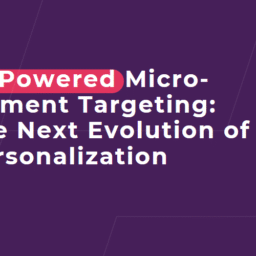In the ever-evolving landscape of marketing, event marketing has taken a significant turn towards the virtual realm. The global pandemic accelerated this shift, but the convenience, reach, and cost-effectiveness of virtual events have ensured their continued popularity. This blog explores the essentials of creating memorable virtual events, offering tips and best practices to help you engage your audience and achieve your marketing goals.
The Rise of Virtual Events
Virtual events are not just a temporary solution; they are now a staple in the marketing toolkit. From webinars and online conferences to virtual trade shows and product launches, businesses are leveraging digital platforms to connect with their audiences in innovative ways. The benefits are clear:
- Cost-Effective: Eliminating venue, travel, and accommodation costs makes virtual events more affordable.
- Flexibility: Attendees can join from the comfort of their homes or offices, increasing participation rates.
- Data and Analytics: Digital platforms offer robust analytics, providing insights into attendee behavior and engagement.
Tips for Creating Memorable Virtual Events
1. Define Clear Objectives
Before planning any event, it’s crucial to define your objectives. Are you aiming to generate leads, educate your audience, launch a new product, or build brand awareness? Clear goals will guide your event planning and help measure success.
2. Choose the Right Platform
Selecting the right virtual event platform is essential. Consider the following factors:
- Scalability: Can the platform handle your expected number of attendees?
- Interactive Features: Look for features like live chat, Q&A sessions, polls, and breakout rooms.
- Analytics: Ensure the platform provides detailed analytics to track engagement and ROI.
- User Experience: The platform should be user-friendly for both organizers and attendees.
Popular platforms include Zoom, Microsoft Teams, Hopin, and Whova, each offering unique features tailored to different event types.
3. Engage Your Audience
Keeping attendees engaged in a virtual setting can be challenging. Here are some strategies to enhance engagement:
- Interactive Content: Use polls, quizzes, and Q&A sessions to make the event interactive.
- Breakout Sessions: Create smaller, focused sessions for more in-depth discussions.
- Live Demos and Tutorials: Showcasing your product or service in action can captivate your audience.
- Networking Opportunities: Facilitate networking through virtual lounges or one-on-one meeting features.
4. High-Quality Production
Invest in high-quality production to make your event professional and appealing:
- Audio and Video: Ensure clear audio and high-definition video quality.
- Lighting and Background: Good lighting and a clean background can make a significant difference.
- Graphics and Visuals: Use engaging visuals, animations, and branded graphics to enhance the viewing experience.
5. Promote Your Event
Effective promotion is key to attracting attendees. Utilize multiple channels to reach your target audience:
- Email Marketing: Send personalized invites and reminders.
- Social Media: Create event pages and share regular updates on platforms like LinkedIn, Twitter, and Facebook.
- Partnerships: Collaborate with influencers or industry partners to broaden your reach.
- Content Marketing: Write blog posts, create videos, and share teaser content to generate interest.
6. Provide Value
Ensure your event delivers real value to attendees:
- Expert Speakers: Invite industry experts and thought leaders to share their insights.
- Relevant Content: Focus on topics that address your audience’s pain points and interests.
- Resource Materials: Provide downloadable resources like eBooks, whitepapers, and slide decks.
7. Follow Up
Post-event follow-up is crucial for maintaining engagement and nurturing leads:
- Surveys and Feedback: Collect feedback to understand what worked and what can be improved.
- On-Demand Access: Provide recordings of the event for those who couldn’t attend live.
- Nurturing Campaigns: Use email drip campaigns to keep the conversation going and move leads down the sales funnel.
Best Practices for Virtual Event Success
- Plan Early and Test Thoroughly: Start planning well in advance and conduct multiple tests to ensure everything runs smoothly.
- Engage Throughout the Event: Keep the momentum going with regular interactions and dynamic content.
- Be Adaptable: Be prepared to handle technical glitches and have contingency plans in place.
- Measure Success: Use analytics to evaluate the event’s success against your defined objectives and gather insights for future events.




